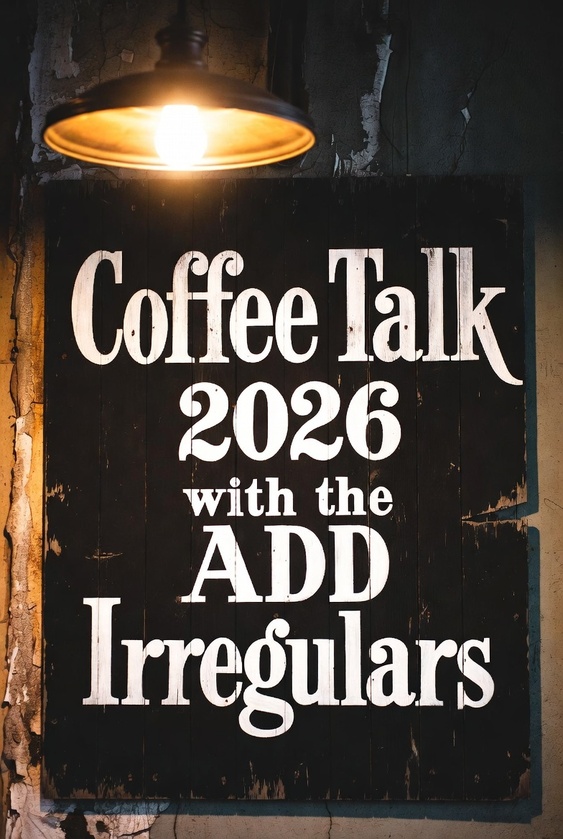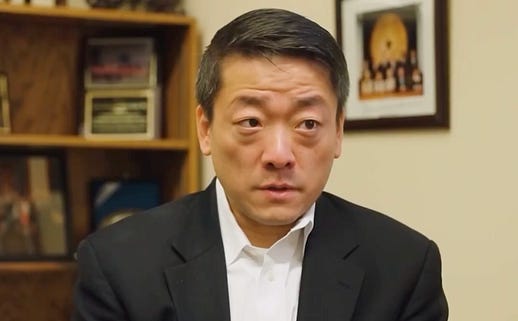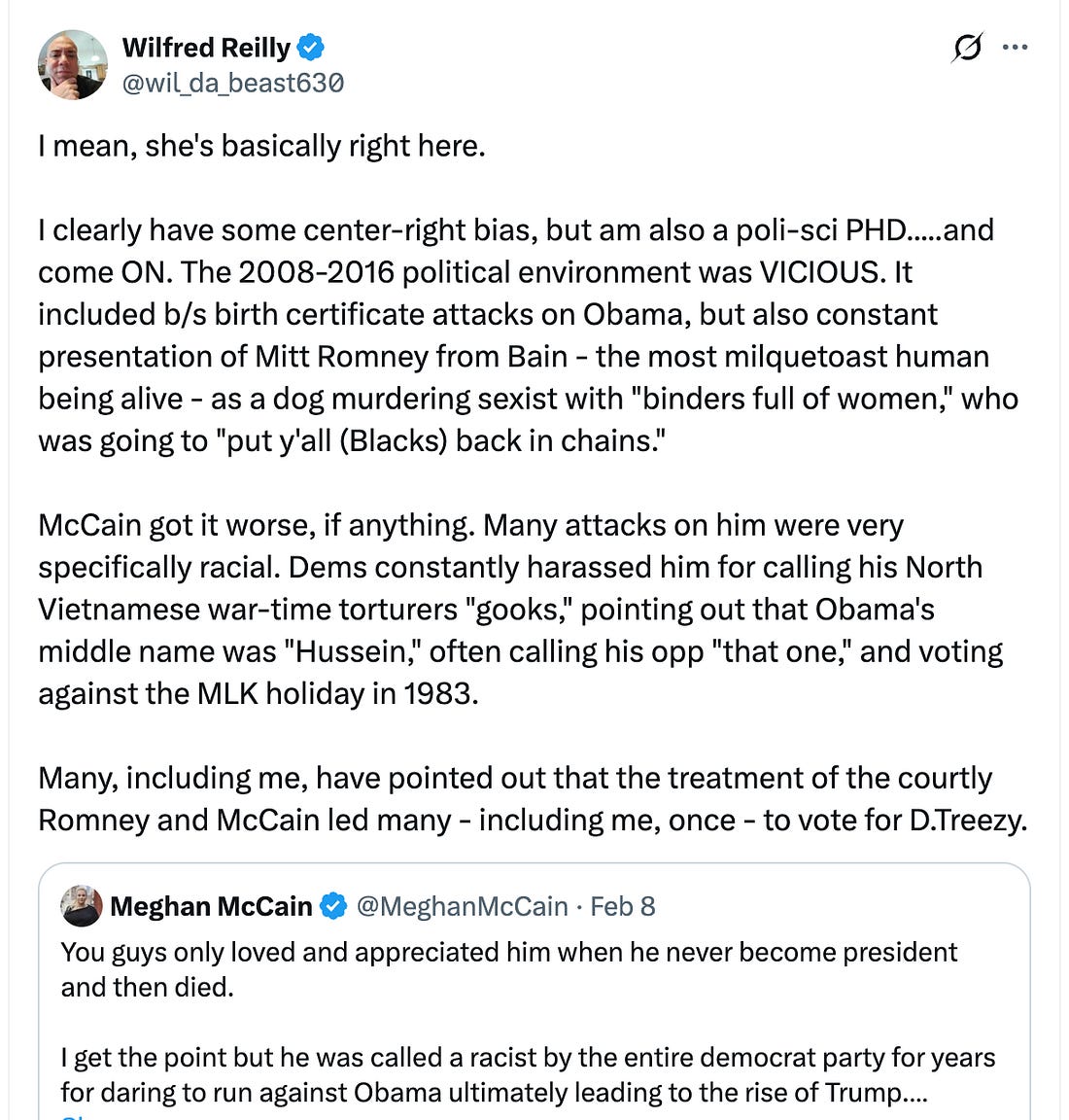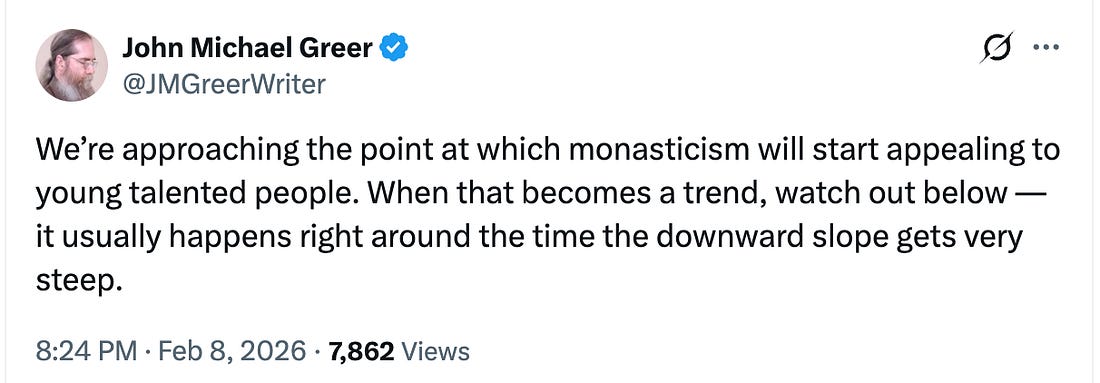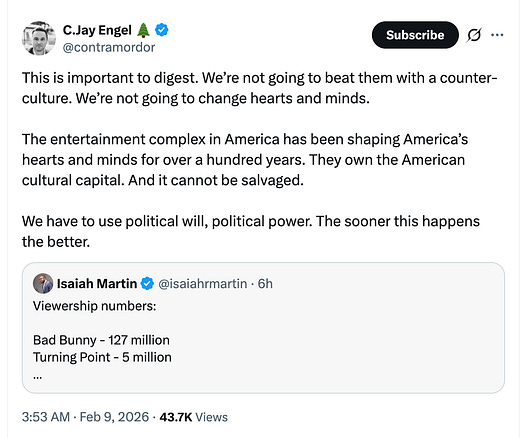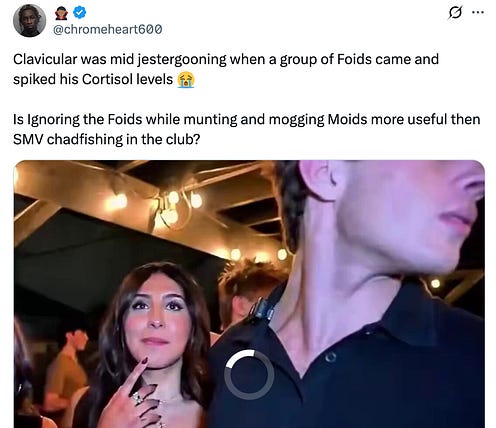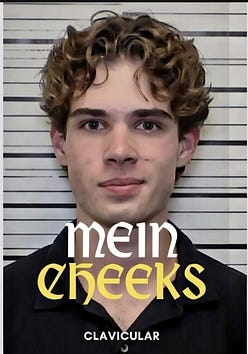
What Orwell feared were those who would ban books. What Huxley feared was that there would be no reason to ban a book because there would be no one who wanted to read one.
— Neil Postman, Amusing Ourselves to Death
The age of print
It was one of the most important revolutions in modern history — and yet no blood was spilled, no bombs were thrown and no monarch was beheaded.
Perhaps no great social transformation has ever been carried out so quietly. This one took place in armchairs, in libraries, in coffee houses and in clubs.
What happened was this: in the middle of the eighteenth century huge numbers of ordinary people began to read.
For the first couple of centuries after the invention of the printing press, reading remained largely an elite pursuit. But by the beginning of the 1700s, the expansion of education and an explosion of cheap books began to diffuse reading rapidly down through the middle classes and even into the lower ranks of society. People alive at the time understood that something momentous was going on. Suddenly it seemed that everyone was reading everywhere: men, women, children, the rich, the poor. Reading began to be described as a “fever”, an “epidemic”, a “craze”, a “madness”. As the historian Tim Blanning writes, “conservatives were appalled and progressives were delighted, that it was a habit that knew no social boundaries.”
This transformation is sometimes known as the “reading revolution”. It was an unprecedented democratisation of information; the greatest transfer of knowledge into the hands of ordinary men and women in history.
In Britain only 6,000 books were published in the first decade of the eighteenth century; in the last decade of the same century the number of new titles was in excess of 56,000. More than half a million new publications appeared in German over the course of the 1700s. The historian Simon Schama has gone so far as to write that “literacy rates in eighteenth century France were much higher than in the late twentieth century United States”.
Where readers had once read “intensively”, spending their lives reading and re-reading two or three books, the reading revolution popularised a new kind of “extensive” reading. People read everything they could get their hands on: newspapers, journals, history, philosophy, science, theology and literature. Books, pamphlets and periodicals poured off the presses.

It was an age of monumental works of thought and knowledge: the Encyclopédie, Samuel Johnson’s Dictionary of the English Language, Edward Gibbon’s Decline and Fall of the Roman Empire, Immanuel Kant’s Critique of Pure Reason. Radical new ideas about God, about history, about society, about politics, and even the whole purpose and meaning of life flooded through Europe.
Even more importantly print changed how people thought.
The world of print is orderly, logical and rational. In books, knowledge is classified, comprehended, connected and put in its place. Books make arguments, propose theses, develop ideas. “To engage with the written word”, the media theorist Neil Postman wrote, “means to follow a line of thought, which requires considerable powers of classifying, inference-making and reasoning.”
As Postman pointed out, it is no accident, that the growth of print culture in the eighteenth century was associated with the growing prestige of reason, hostility to superstition, the birth of capitalism, and the rapid development of science. Other historians have linked the eighteenth century explosion of literacy to the Enlightenment, the birth of human rights, the arrival of democracy and even the beginnings of the industrial revolution.
The world as we know it was forged in the reading revolution.
The counter revolution
Now, we are living through the counter-revolution.
More than three hundred years after the reading revolution ushered in a new era of human knowledge, books are dying.
Numerous studies show that reading is in free-fall. Even the most pessimistic twentieth-century critics of the screen-age would have struggled to predict the scale of the present crisis.
In America, reading for pleasure has fallen by forty per cent in the last twenty years. In the UK, more than a third of adults say they have given up reading. The National Literacy Trust reports “shocking and dispiriting” falls in children’s reading, which is now at its lowest level on record. The publishing industry is in crisis: as the author Alexander Larman writes, “books that once would have sold in the tens, even hundreds, of thousands are now lucky to sell in the mid-four figures.”
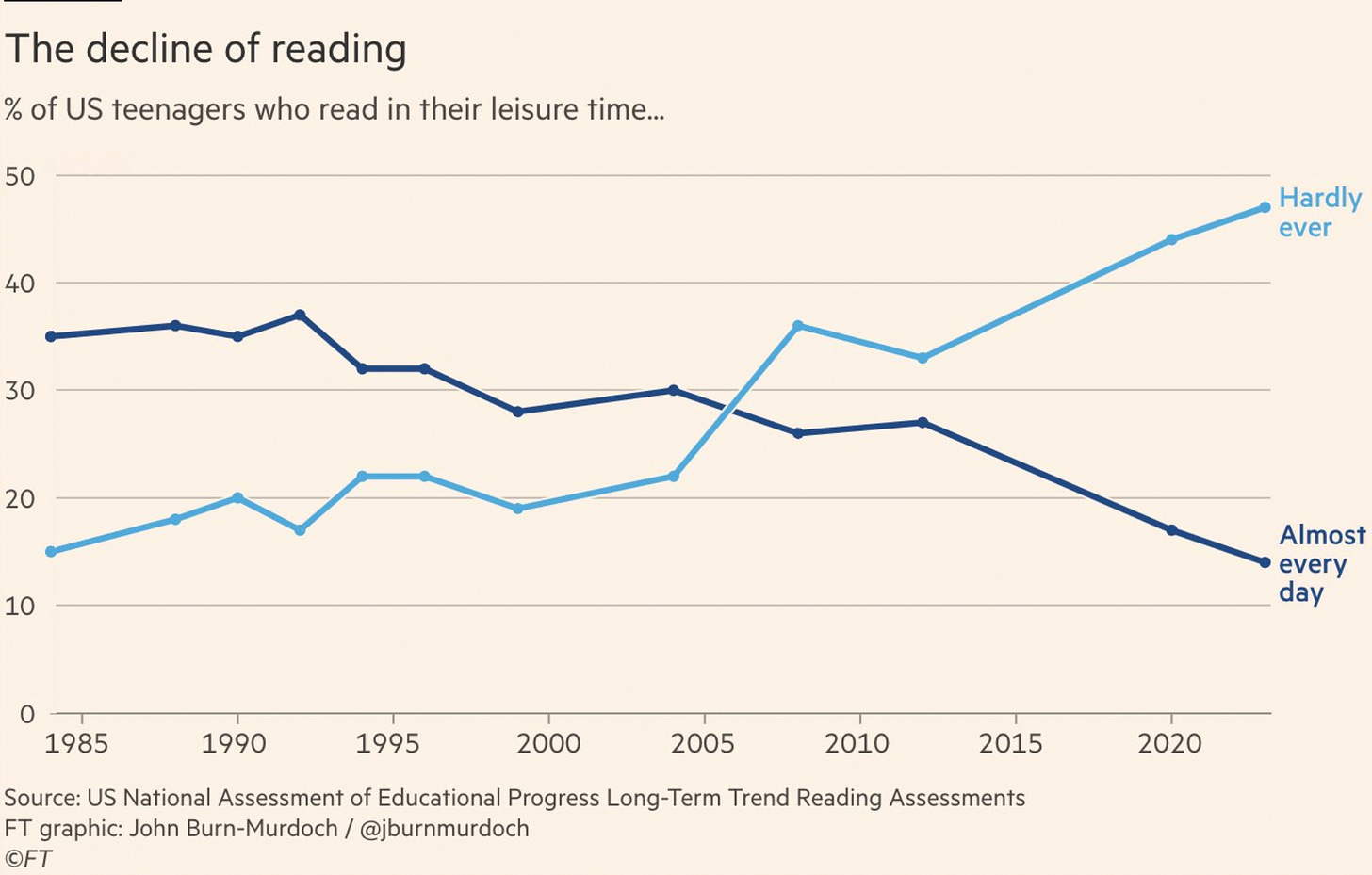
Most remarkably, in late 2024 the OECD published a report which found that literacy levels were “declining or stagnating” in most developed countries. Once upon a time a social scientist confronted with statistics like these might have guessed the cause was a societal crisis like a war or the collapse of the education system.
What happened was the smartphone, which was widely adopted in developed countries in the mid-2010s. Those years will be remembered as a watershed in human history.
Never before has there been a technology like the smartphone. Where previous entertainment technologies like cinema or television were intended to capture their audience’s attention for a period, the smartphone demands your entire life. Phones are designed to be hyper-addictive, hooking users on a diet of pointless notifications, inane short-form videos and social media rage bait.
The average person now spends seven hours a day staring at a screen. For Gen Z the figure is nine hours. A recent article in The Times found that on average modern students are destined to spend 25 years of their waking lives scrolling on screens.
If the reading revolution represented the greatest transfer of knowledge to ordinary men and women in history, the screen revolution represents the greatest theft of knowledge from ordinary people in history.
Our universities are at the front line of this crisis. They are now teaching their first truly “post-literate” cohorts of students, who have grown up almost entirely in the world of short-form video, computer games, addictive algorithms (and, increasingly, AI).
Because ubiquitous mobile internet has destroyed these students’ attention spans and restricted the growth of their vocabularies, the rich and detailed knowledge stored in books is becoming inaccessible to many of them. A study of English literature students at American universities found that they were unable to understand the first paragraph of Charles Dickens’s novel Bleak House — a book that was once regularly read by children1.
An article published in The Atlantic, ‘The Elite College Students Who Can’t Read Books’ cites the characteristic experience of one professor:
Twenty years ago, Dames’s classes had no problem engaging in sophisticated discussions of Pride and Prejudice one week and Crime and Punishment the next. Now his students tell him up front that the reading load feels impossible. It’s not just the frenetic pace; they struggle to attend to small details while keeping track of the overall plot.
“Most of our students”, according to another despairing assessment, “are functionally illiterate”. This chimes with everything I’ve heard in my own conversations with teachers and academics. One Oxbridge lecturer I spoke to described a “collapse in literacy” among his students.
The transmission of knowledge — the most ancient function of the university — is breaking down in front of our eyes. Writers like Shakespeare, Milton and Jane Austen whose works have been handed on for centuries can no longer reach the next generation of readers. They are losing the ability to understand them.
The tradition of learning is like a precious golden thread of knowledge running through human history linking reader to reader through time. It last snapped during the collapse of the Western Roman Empire as the barbarian tides beat against the frontier, cities shrank and libraries burned or decayed2. As the world of Rome’s educated elite fell apart, many writers and works of literature passed out of human memory — either to be lost forever or to be rediscovered hundreds of years later in the Renaissance.
That golden thread is breaking for the second time.
An intellectual tragedy
The collapse of reading is driving declines in various measures of cognitive ability. Reading is associated with a number of cognitive benefits including improved memory and attention span, better analytical thinking, improved verbal fluency, and lower rates of cognitive decline in later life.
After the introduction of smartphones in the mid-2010s, global PISA scores — the most famous international measure of student ability — began to decline. As John Burn Murdoch writes in the Financial Times, students increasingly tell surveys that they struggle to think, learn and concentrate. You will notice the tell-tale mid-2010s inflection point:
The Monitoring the Future study has been asking 18-year-olds whether they have difficulty thinking, concentrating or learning new things. The share of final year high school students who report difficulties was stable throughout the 1990s and 2000s, but began a rapid upward climb in the mid-2010s.

And, as Burn Murdoch says, these cognitive issues are not restricted to schools and universities. They affect everyone: “[the] decline in measures of reasoning and problem-solving is not confined to teenagers. Adults show a similar pattern, with declines visible across all age groups”.

Most intriguing — and alarming — is the case of IQ, which rose consistently throughout the twentieth century (the so-called “Flynn effect”) but which now seems to have begun to fall.
The result is not only the loss of information and intelligence, but a tragic impoverishing of the human experience.
For centuries, almost all educated and intelligent people have believed that literature and learning are among the highest purposes and deepest consolations of human existence.
The classics have been preserved over the centuries because they contain, in Matthew Arnold’s famous phrase, “the best that has been thought and said”.
The greatest novels and poems enrich our sense of the human experience by imaginatively putting us inside other minds and taking us to other times and other places. By reading non-fiction — science, history, philosophy, travel writing — we become deeply acquainted with our place in the extraordinary and complicated world we are privileged to inhabit.
Smartphones are robbing of us of these consolations.
The epidemic of anxiety, depression and purposeless afflicting young people in the twenty-first century is often linked to the isolation and negative social comparison fostered by smartphones.
It is also a direct product of the pointlessness, fragmentation and triviality of the culture of the screen which is wholly unequipped to speak to the deep human needs for curiosity, narrative, deep attention and artistic fulfilment.
World without mind
This draining away of culture, critical thinking and intelligence represents a tragic loss of human potential and human flourishing. It is also one of the major challenges facing modern societies. Our vast, interconnected, tolerant and technologically advanced civilisation is founded on the complex, rational kinds of thinking fostered by literacy.
As Walter Ong writes in his book Orality and Literacy, certain kinds of complex and logical thinking simply cannot be achieved without reading and writing. It is virtually impossible to develop a detailed and logical argument in spontaneous speech — you would get lost, lose your thread, contradict yourself, and confuse your audience trying to re-phrase ineptly expressed points.
As an extreme example think of somebody trying to simply speak a famous work of philosophy. Say, Kant’s 900-page The Critique of Pure Reason or Ludwig Wittgenstein’s Tractatus or Sartre’s Being and Nothingness. It would be impossible to do. And also impossible to listen to.
To produce his great work Kant had to write down his ideas, scratch them out, think about them, refine them and then rework them over many years so they added up into a persuasive and logical whole.
To properly understand the book you have to be able to have it in front of you so you can re-read bits you don’t understand, check logical connections and meditate on important passages until you really take them in. This kind of advanced thinking is inseparable from reading and writing.
The classicist Eric Havelock argued that the arrival of literacy in ancient Greece was the catalyst for the birth of philosophy. Once people had a means of pinning ideas down on the page to interrogate them, refine them and build on them, a whole new revolutionary way of analytic and abstract thinking was born — one that would go on to shape our entire civilisation3. With the birth of writing received ways of thinking could be challenged and improved. This was our species’ cognitive liberation.
As Neil Postman puts it in Amusing Ourselves to Death:
Philosophy cannot exist without criticism . . . writing makes it possible and convenient to subject thought to a continuous and concentrated scrutiny. Writing freezes speech and in so doing gives birth to the grammarian, the logician, the rhetorician, the historian, the scientist-all those who must hold language before them so that they can see what it means, where it errs, and where it is leading.
Not only philosophy but the entire intellectual infrastructure of modern civilisation depends on the kinds of complex thinking inseparable from reading and writing: serious historical writing, scientific theorems, detailed policy proposals and the kinds of rigorous and dispassionate political debate conducted in books and magazines.
These forms of advanced thought provide the intellectual underpinnings of modernity. If our world feels unstable at the moment — like the ground is shifting beneath us — it is because those underpinnings are falling to pieces underneath our feet.
As you have probably noticed, the world of the screen is going to be much a choppier place than the world of print: more emotional, more angry, more chaotic.
Walter Ong emphasised that writing cools and rationalises thought. If you want to make your case in person or in a TikTok video you have innumerable means for bypassing logical argument. You can shout and weep and charm your audience into submission. You can play emotive music or show harrowing images. Such appeals are not rational but human beings are not perfectly rational animals and are inclined to be persuaded by them.
A book can’t yell at you (thank God!) and it can’t cry. Without the array of logic-defeating appeals available to podcasters and YouTubers, authors are much more reliant on reason alone, condemned to painfully piece their arguments together sentence by sentence (I feel that agony now). Books are far from perfect but they are much more closely bound to the imperatives of logical argument than any other means of human communication ever devised.
This is why Ong observed that pre-literate “oral” societies often strike visitors from literate countries as remarkably mystical, emotional, and antagonistic in their discourse and thinking4.

As books die, we seem to be returning to these “oral” habits of thought. Our discourse is collapsing into panic, hatred and tribal warfare. Anti-scientific thought thrives at the highest level of the American government. Promoters of irrationality and conspiracy theories such as Candace Owens and Russell Brand find vast and credulous audiences online.
Laid out on the page their arguments would seem absurd. On the screen, they are persuasive to many people.
The rise of these emotional and irrational styles of thinking poses a profound challenge to our culture and politics.
We may be about to find out that it is not possible to run the most advanced civilisation in the history of the planet with the intellectual apparatus of a pre-literate society.
The end of creativity
The age of print was characterised by unprecedented dynamism and cultural richness. Reading is a foundation stone of the creativity and innovation that is fundamental to modernity.
It is not the case that for a society to benefit from the culture of print that every citizen must be a bookworm. And yet if one habit unites the leaders, inventors, scientists and artists who have forged our civilisation it is reading. Serious readers are over-represented in almost every area of human achievement.
Take great politicians: Teddy Roosevelt claimed to read a book a day, Winston Churchill set himself an ambitious programme of reading in philosophy, economics and history as a young man and continued to read voraciously throughout his life. Clement Attlee recalled that he read four books a week as a schoolboy.

Or consider popular culture (not usually thought of as a particularly literary field of human endeavour). David Bowie read, in his own words, “voraciously”. “Every book I ever bought, I have. I can't throw it away”, he once said. “It's physically impossible to leave my hand!” A list Bowie wrote of his hundred favourite books includes works by William Faulkner, Tom Stoppard, DH Lawrence and TS Eliot.
In a recent book about his song-writing career Paul McCartney cited “Dylan Thomas, Oscar Wilde and Allen Ginsberg, of French symbolist writer Alfred Jarry, Eugene O’Neill and Henrik Ibsen” among the authors who had inspired him.
Thomas Edison read deeply throughout his life. So did Charles Darwin. So did Albert Einstein. Ironically, even Elon Musk claims that he was “raised by books”.
Reading enriches creative work by giving men and women of genius access to the vast and priceless trove of knowledge preserved in books — “the best that has been thought and said”. The discipline of reading equips them with the analytical tools to interrogate, refine and revolutionise that tradition.
As Elizabeth Eisenstein argues in The Printing Revolution in Early Modern Europe, the invention of the printing press helped to catalyse a series of cultural revolutions which forged the modern world: the Renaissance, the Reformation and the scientific revolution. Other historians would add the Enlightenment, the birth of human rights and the industrial revolution.
Eisenstein explains how the tendency of reading to foster innovation played out in Renaissance universities. With the invention of printing students had increased access to books allowing “bright undergraduates to reach beyond their teachers’ grasp. Gifted students no longer needed to sit at the feet of a given master in order to learn a language or academic skill.” And so,
Students who took advantage of technical texts which served as silent instructors were less likely to defer to traditional authority and more receptive to innovating trends. Young minds provided with updated editions, especially of mathematical texts, began to surpass not only their own elders but the wisdom of ancients as well.
Modern students who are unable to read are once more reliant on the authority of their teachers and are less capable of racing ahead, innovating and questioning orthodoxies.
These students are just one symptom of the stagnant culture of the screen age which is characterised by simplicity, repetitiveness and shallowness. Its symptoms are observable all around us.
Pop songs in every genre are becoming shorter, simpler and more repetitive and films are being reduced to endlessly-repeated franchise formulas. Studies suggest that the number of “disruptive” and “transformative” inventions is declining. More money is spent on scientific research than ever in history but the rate of progress “is barely keeping pace with the past”.
Doubtless many factors are at work, but this is also precisely what you would expect of a generation of researchers who spent their childhoods glued to screens rather than reading or thinking.
Even books themselves are becoming less complex.
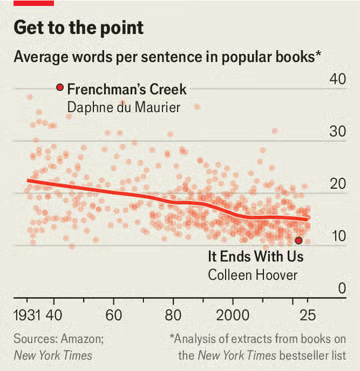
If the literate world was characterised by complexity and innovation, the post literate world is characterised by simplicity, ignorance and stagnation. It is probably not an accident that the decline of literacy has ushered in an obsession with cultural “nostalgia”; a desire to endlessly recycle the cultural forms of the past: the television shows and styles of the nineties, for instance, or the fashions of the early 2000s.
Our culture is being transformed into a smartphone wasteland.
Cut off from the cultural riches of the past we are condemned to live in a narcissistic eternal present. Deprived of the critical tools to question and develop the insights of those who went before us, we are condemned to endlessly repeat and pastiche ourselves, superhero film by superhero film, repetitive pop song by repetitive pop song.
Most of all, this increasingly trivial and mindless culture is a calamity for our politics.
The death of democracy
Amusingly from the perspective of the present the reading revolution of the eighteenth century was accompanied not only by excitement but by a moral panic.
“No lover of tobacco or coffee, no wine drinker or lover of games, can be as addicted to their pipe, bottle, games or coffee-table as those many hungry readers are to their reading habit”, thundered one German clergyman.
Richard Steele feared that “novels raise expectations which the ordinary course of life can never realise”. Others fretted that reading “excites the imagination too much, and fatigues the heart”.
It is easy to laugh at these anxieties. We have spent our whole lives hearing how virtuous and sensible it is to read books. How could reading be dangerous?
But in hindsight, these conservative moralists were right to worry. The rapid expansion of literacy helped to destroy the orderly, hierarchical, and profoundly socially unequal world they cherished.
The reading revolution was a catastrophe for the ultra-privileged and exploitative aristocrats of the European aristocratic ancien regime — the old autocratic system of government with almighty kings at the top, lords and clergy underneath and peasants squirming at the very bottom.
Ignorance was a foundation stone of feudal Europe. The vast inequalities of the aristocratic order were partly able to be sustained because the population had no way to find out about the scale of the corruption, abuses and inefficiencies of their governments.
And the old feudal hierarchy was justified not so much by logical argument as by what Walter Ong might have recognised as very pre-literate appeals to mystical and emotional thinking.
This was what historians of the seventeenth century know as the “representational” culture of power, the highly visual system of monarchical propaganda which forced the fearsome and awe-inspiring image of the king onto his subjects. The regime displayed its power in parades, paintings, fire-work displays, statues and grandiose buildings.

The system worked in an age before mass literacy. But as knowledge spread through society and the analytic, critical modes of thinking fostered by print took hold, the whole mental and cultural atmosphere which sustained the old order was burned away. People began to know too much. And to think too much.
The feudal order seems to be fundamentally incompatible with literacy. The historian Orlando Figes has noted that the English, French and Russian revolutions all occurred in societies in which literacy was approaching fifty per cent.
Robert Darnton’s book The Revolutionary Temper chronicles the chaos unleashed on the old regime in France by the age of print. Knowledge spread through French society with disastrous effect: political prisoners wrote bestselling memoirs publicising their unjust incarceration by the state; ordinary people consumed pamphlets about the exorbitant and unjust wealth enjoyed by aristocrats; the government’s disastrous finances were suddenly debated by an incredulous and furious public rather than behind closed doors in the back rooms of Versailles.
Meanwhile the analytic, critical modes of thinking began to eat away at the mystical and emotional underpinnings of the old order. The philosophes and radical thinkers of the Enlightenment, supported by a growing middle class readership, began to ask the kinds of critical questions that are pre-eminently print-based in their tone. Where does power come from? Why should some men have so much more than others? Why aren’t all men equal?
***It’s worth noting that this highly simplified account clearly excludes many of the factors the shape the unfolding of history: economics, climate, individual men and women, blind chance. Print alone cannot usher in peace and democracy (witness the consequences of the Russian revolution). And print cannot abolish the innate human tendencies towards partisanship and violence (witness the aftermath of the French revolution). Print is certainly not immune to fake news and conspiracy theories (witness the lead-up to the French revolution). ***
But you do not have to believe print is a perfect and incorruptible system of communication to accept it is also almost certainly a necessary pre-condition of democracy.
In Amusing Ourselves to Death Neil Postman argues that democracy and print are virtually inseparable. An effective democracy pre-supposes a reasonably informed and somewhat critical citizenry capable of understanding and debating the issues of the day in detail and at length.
Democracy draws immeasurable strength from print — the old dying world of books, newspapers and magazines — with its tendency to foster deep knowledge, logical argument, critical thought, objectivity and dispassionate engagement. In this environment, ordinary people have the tools to understand their rulers, to criticise them and, perhaps, to change them.
Postman cites the Lincoln-Douglas debates of 1858 in which both presidential candidates spoke at incredible length and in remarkable detail as one of the summits of print culture:
Their arrangement provided that Douglas would speak first, for one hour; Lincoln would take an hour and a half to reply; Douglas, a half hour to rebut Lincoln’s reply. This debate was considerably shorter than those to which the two men were accustomed . . . on October 16, 1854, in Peoria, Illinois, Douglas delivered a three-hour address to which Lincoln, by agreement, was to respond.
When Postman was writing in the late 1980s, such debates were already impossible to imagine. Ironically the televised debates that he criticised as degraded, uninformative and over-emotional strike twenty-first century viewers as almost comically civilised and high minded.
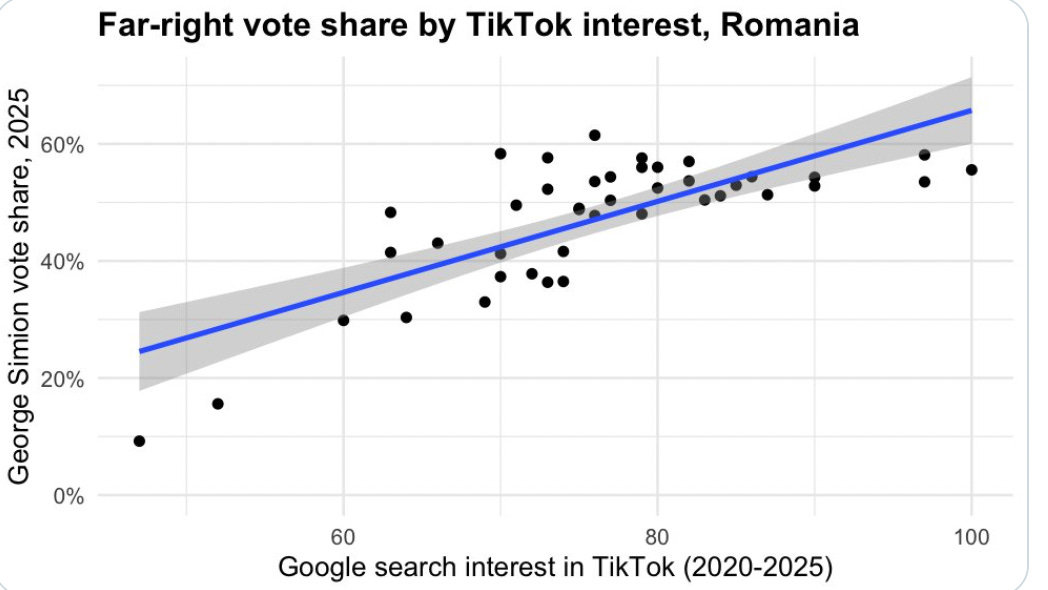
Politics in the age of short form video favours heightened emotion, ignorance and unevidenced assertions. Such circumstances are highly propitious for charismatic charlatans. Inevitably, parties and politicians hostile to democracy are flourishing in the post-literate world. TikTok usage correlates with increased vote share for populist parties and the far right.
TikTok, as the writer, Ian Leslie puts it is “rocket fuel for populists”.
Why does [TikTok] benefit populists disproportionately? Because, almost by definition, populism thrives on emotions, not thoughts; on feelings not sentences. Populists specialise in providing that rush of certainty you get when you know you’re right. They don’t want you to think. Thinking is where certainty goes to die.
The rational, dispassionate print-based liberal democratic order may not survive this revolution.
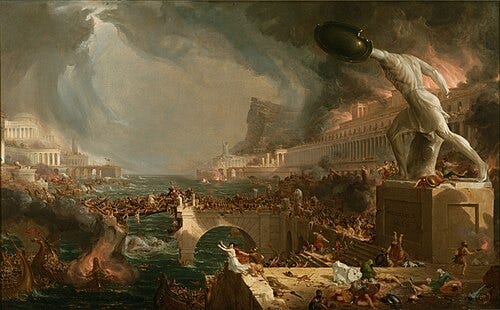
Into the moronic inferno
The big tech companies like to see themselves as invested in spreading knowledge and curiosity. In fact in order to survive they must promote stupidity. The tech oligarchs have just as much of a stake in the ignorance of the population as the most reactionary feudal autocrat. Dumb rage and partisan thinking keep us glued to our phones.
And where the old European monarchies had to (often ineptly) try to censor dangerously critical material, the big tech companies ensure our ignorance much more effectively by flooding our culture with rage, distraction and irrelevance.
These companies are actively working to destroy human enlightenment and usher in a new dark age.
The screen revolution will shape our politics as profoundly as the reading revolution of the eighteenth century.
Without the knowledge and without the critical thinking skills instilled by print, many of the citizens of modern democracies find themselves as helpless and as credulous as medieval peasants — moved by irrational appeals and prone to mob thinking. The world after print increasingly resembles the world before print.
Superstitions and anti-democratic thinking flourish. Scholarship in our universities is shaped by rigid partisanship not by tolerance and curiosity. Our art and literature is cruder and more simplistic.
Many people are now as suspicious of vaccines as the uneducated yokels of the eighteenth century satirised by the cartoonist James Gillray more than two hundred years ago.
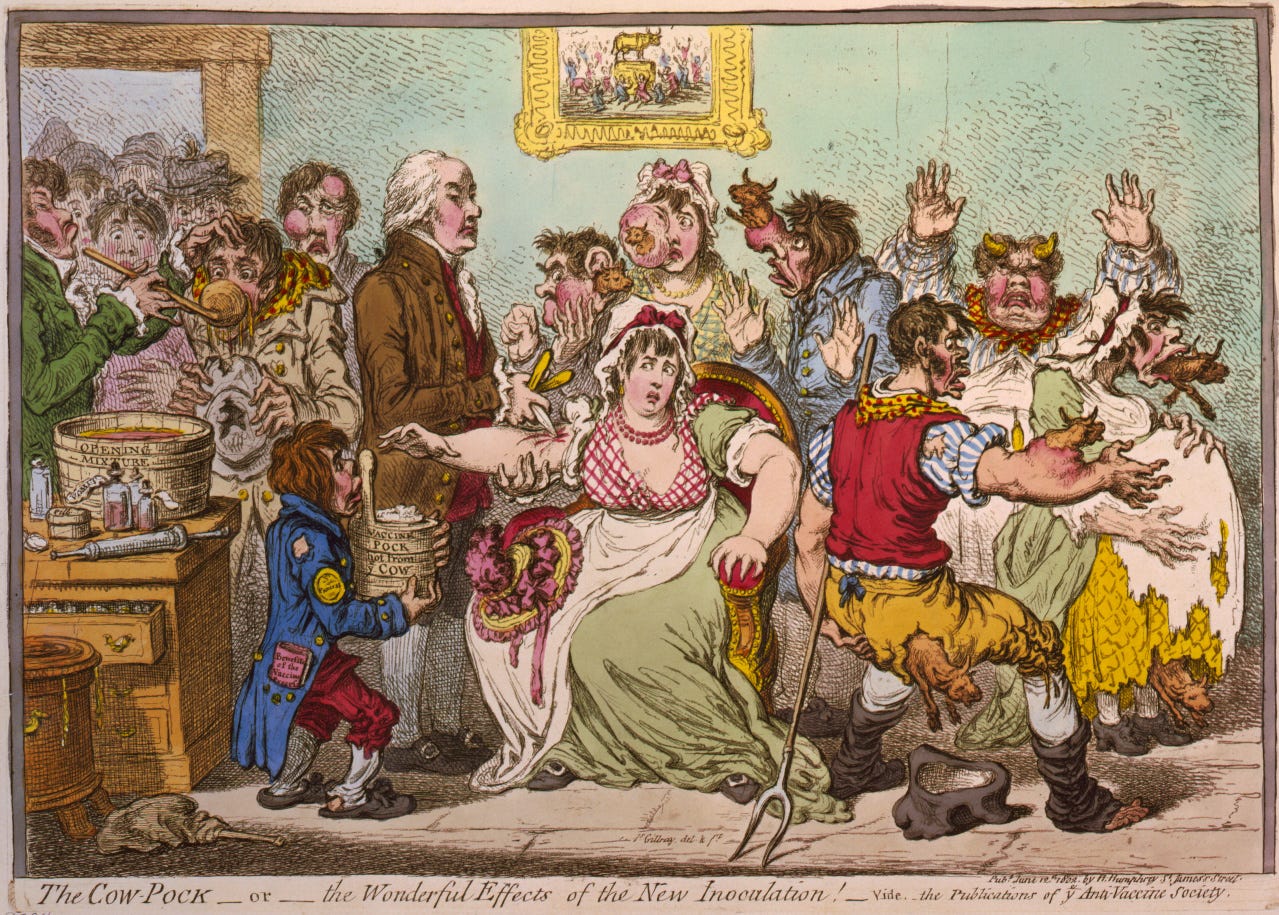
As power, wealth and knowledge concentrate at the top of society, an angry, divided and uninformed public lacks a way understand or analyse or criticise or change what is going on. Instead more and more people are impressed by the kinds of highly emotional charismatic and mystical appeals that were the foundation of power in the age before widespread literacy.
Just as the advent of print dealt the final death blow to the decaying world of feudalism, so the screen is destroying the world of liberal democracy.
As tech companies wipe out literacy and middle class jobs, we may find ourselves a second feudal age. Or it may be that we are entering a political era beyond our imagining.
Whatever happens, we are already seeing the world we once knew melt away. Nothing will ever be the same again.
Welcome to the post-literate society.
When George Orwell reported on a newly-published study of children’s reading habits in 1940, he found that children were “voluntarily” reading works by Charles Dickens, Daniel Defoe, Robert Louis Stevenson, GK Chesterton and Shakespeare. These children, he noted, were “aged between 12-15 and belonged to the poorest class in the community”.
I protest that I read my Peter Brown and accept this is a simplistic (though I hope rhetorically forceful) characterisation of late antiquity. But I also think recent fashionable attempts to rebrand the “dark ages” as the “light ages” can be a bit overdone. Literacy rates did decline in late antiquity.
People sometimes object that Socrates bemoaned the death of writing. Havelock’s detailed argument as set out in his book Preface to Plato is worth reading in full. One point he makes is that Socrates himself was the product of an intellectual climate already being profoundly influenced by writing. Plato, according to Havelock, was an active campaigner against pre-literate modes of thinking.
This is not to say literate societies are “better” or more intelligent than oral societies. As Ong writes, oral societies are capable of feats of memory that are staggering to outsiders. But it is true that literate habits of thought seem to be essential to the kind of advanced and complex civilisation we live in.



